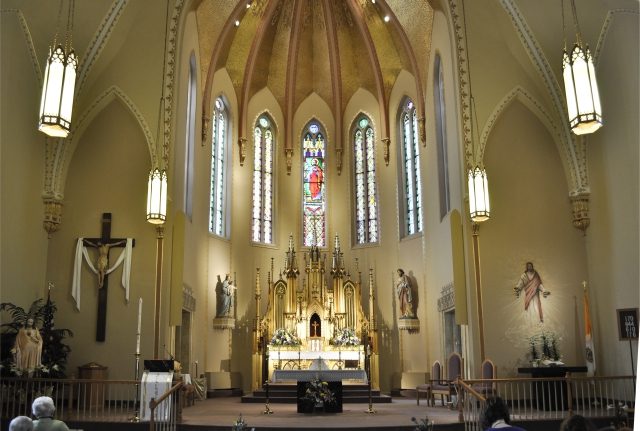Dear Brothers and Sisters, good morning!
Every Sunday we remember the Lord Jesus’ Resurrection, but in this season after Easter, this Sunday has an even more illuminating meaning. In the Church’s tradition, this Sunday, the first after Easter, was called “in albis.” What does this mean? The expression intended to recall the rite carried out by all those who received Baptism in the Easter Vigil. Each one of them was given a white garment – “alba” – ”white” — to indicate their new dignity as children of God. This is also done today: newborns are given a small symbolic dress, whereas adults put on a true and proper one, as we saw in the Easter Vigil. And, in the past, that white garment was worn for a week. until this Sunday, and from this stems the name in albis deponendis, which means the Sunday in which the white garment is taken off. And thus, the white garment removed, the neophytes began their new life in Christ and in the Church.
There is something else. In the Jubilee of the Year 2000, Saint John Paul II established that this Sunday be dedicated to the Divine Mercy. It is true, it was a beautiful intuition: it was the Holy Spirit that inspired him in this. A few months ago we concluded the Extraordinary Jubilee of Mercy and this Sunday invites us to take up forcefully the grace that comes from God’s mercy. Today’s Gospel is the account of the Risen Jesus’ apparition to the disciples gathered in the Cenacle (cf. John 20:19-31). Saint John writes that, after greeting His disciples, Jesus said to them: “As the Father has sent me, even so I send you.” Having said this, He made the gesture of breathing on them and added: “Receive the Holy Spirit. If you forgive the sins of any, they are forgiven” (vv. 21-23). See the meaning of mercy that is presented in fact on the day of Jesus’ Resurrection as forgiveness of sins. The Risen Jesus transmitted to His Church, as her first task, His same mission to take to all the concrete proclamation of forgiveness. This is the first task: to proclaim forgiveness. This visible sign of His mercy brings with it peace of heart and the joy of a renewed encounter with the Lord.
In the light of Easter, mercy is perceived as a true form of knowledge. And this is important: mercy is a true form of knowledge. We know that one knows through many ways. One knows through the senses, one knows through intuition, through reason and also other ways. Well, one can also know through the experience of mercy, because mercy opens the door of the mind to understand better the mystery of God and of our personal existence. Mercy makes us understand that violence, rancor, vengeance make no sense, and the first victim is the one who lives these sentiments, because he deprives himself of his dignity. Mercy also opens the door of the heart and enables us to express closeness especially to all those who are alone and marginalized, because it makes them feel brothers and children of one Father. It fosters the recognition of all those in need of consolation and makes us find the appropriate words to give them comfort.
Brothers and sisters, mercy warms the heart and makes it sensitive to the needs of brothers with sharing and participation. In sum, mercy commits all to be instruments of justice, reconciliation and peace. Let us never forget that mercy is the turnkey in the life of faith, and the concrete way with which we give visibility to Jesus’ resurrection.
May Mary, Mother of Mercy, help us to believe and live all this with joy.
— Pope Francis

